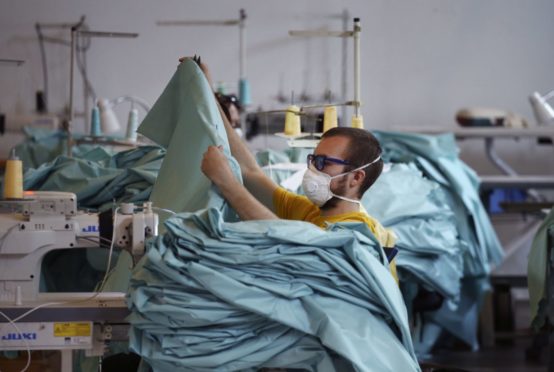Business of Fashion recently published a report highlighting the effects of the Covid-19 pandemic, where it is estimated that the fashion industry’s global annual income (which stands at around £2 trillion) could drop by up to 30%.
The lockdowns that have taken place in countries around the world have disrupted not only the demand for fashion but also its international supply chains. These are fundamental problems that the pandemic presents for the industry right now, but clearly there will be further repercussions as key markets go through economic recession.
Although the current circumstances are both necessary and undesirable from societal and business perspectives, there has been much discussion around Covid-19 as a window of opportunity that has forced society and commerce to slow down and reassess. It is hoped by many that this opportunity will necessitate the shift towards a more sustainable business model for fashion, among other sectors.
The fashion industry has long come under scrutiny around sustainability and ethical conduct, where a number of fast fashion retailers source garments from overseas factories, often with little knowledge or consideration of the working conditions within these settings. During the current pandemic, with retailers forced to close and people not buying as many garments, some companies have cancelled their orders with immediate effect and with no obligation to pay suppliers.
As a result, factories have been left with large quantities of unwanted stock and workers have gone unpaid. This has sparked outrage, and Lost Stock is an initiative that has set out to raise awareness of these issues and is asking people to consider supporting factory workers in Bangladesh by buying a box of clothing. The issue of ethics and sustainability in fashion more generally centres on the idea that the lifecycle changes too quickly; this has resulted in the fast fashion phenomenon and an onslaught of businesses who source and sell cheap garments – a business model that encourages people to consume fashion in a disposable manner, buying too much and disposing of unwanted garments after (potentially) only one wear.
However, the entire concept of fashion is based on the fact that styles and aesthetics will change and, despite marketers’ best efforts, fashion has long been influenced by external factors, many of which (as with the current pandemic) are uncontrollable and unpredictable. Two key words that have been highlighted in relation to the fashion industry’s endurance of the difficulties that lie ahead are innovation and digitisation. Clearly a strong digital strategy has helped many fashion retailers to continue doing business during lockdown. This puts the sector at an advantage over some, such as tourism and hospitality.
Companies like Zara have made swift adaptations to communications to reflect their customers’ changing lifestyles, where garments are shown on their websites using images of models posing in their homes. Although their imagery has attracted some criticism around glamourising lockdown, you have to admire the speed at which Zara responded.
In terms of innovation, we have seen the industry adapting its skill set and addressing concerns around PPE by manufacturing hospital gowns and face masks – from large companies like Zara to independent designers and makers that are closer to home in Aberdeen, for example Fernweh.
Interestingly, and across industry sectors, it is smaller businesses that seem to have become the most creative in these past weeks. Perhaps, in part, through necessity but maybe also because they are autonomous and able to adapt and diversify more quickly. In light of new guidelines around the general public’s use of facemasks, a number of independent artists and designers are offering fashionable options, including Helen Ruth Scarves and Cat the Seamstress (both of whom are Aberdeen-based and RGU alumni/students).
Facemask fashion has been highlighted in the media (such as in Vogue) and we are slowly seeing the shift from these being utilitarian and practical to more stylish and coveted. The transformation of this iconic item that, until recently, was quite taboo in some cultures (certainly in the UK) is perhaps particularly emblematic of fashion as a concept and perhaps this is how the industry will be remembered during this period in years to come.
The digitisation of upcoming September fashion week events, the shift towards a more seasonless model (following Gucci’s lead) and operational decisions around how shops can reopen safely are just some of the major discussions that are taking place within the industry right now. Some might argue that the move towards a slower fashion lifecycle is not only very welcome but also overdue. Certainly, the pandemic has further highlighted issues that exist for the fashion industry and led to further calls for action but it has also provided businesses with a unique opportunity to stop, engage with and address some of these matters in an authentic way.
Dr Madeleine Marcella-Hood is head of Year 1 BA (Hons) fashion management and a lecturer in the School of Creative and Cultural Business at Robert Gordon University
